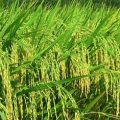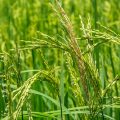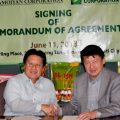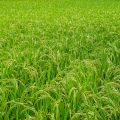A hybrid rice field trial in Myanmar has yielded 150 metric tons (MT) of seed per hectare on 100 hectares in Yangon’s Dagon Township, proving Myanmar can be a viable production site for Philippines’ rice export.
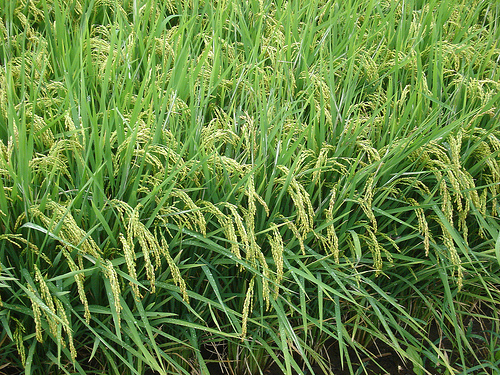
Filipino hybrid rice firm SL Agritech Corp. (SLAC) successfully led last planting season a pioneering trial of hybrid rice seed SL-8H, branded “ Shwe Lar-SL-8H” in Myanmar.
Also planted were commercial table grade rice SL-7H (Dona Maria Jasponica) on 11 hectares, SL-9H (Miponica) on 28 hectares, and SL-8H on 20 hectares.
“We can export our Dona Maria Jasponica and Miponica rice from Myanmar. Consumers in Myanmar may not want soft and sticky rice, but that’s our opportunity to export rice harvested from there,” said SLAC Chairman Henry Lim Bon Liong.
The Philippines has limited flat land for rice, but Myanmar has around 17 million hectares (far bigger than other rice exporters’) of uncultivated land that can be planted on rice.
Formerly Burma, Myanmar used to be world’s biggest rice exporters prior to World War II when it was then under British rule.
As another advantage, exporting rice from Myanmar carries preferential zero tariff for European destinations, according to Dr. Frisco M. Malabanan, SLAC technical consultant.
Other potential export destinations for Dona Maria rice from Myanmar are China and the United States. When exported, the Filipino brand name Dona Maria premium rice should be retained as brand name for consistency in the world market.
Because it is only now that agricultural land in Myanmar is being tapped, soil is fertile.
“The area is very good for seed production. There’s enough water. The soil is very fertile and can be easily mechanized,” said Malabanan who led a harvest festival in Myanmar last May 7, 2016.
Visitors during the harvest festival were World Food Program Representative Nway Wyit Yee Zaw; Department of Agriculture Dagon Township Chief Officer U. Thwin Soe; Philippines Consul General to Myanmar Maria Lourdes M. Saskedo; SLAC hybrid rice breeder Dr. Weijun Xu, and SLAC Vice President Christian Brian Lim.
The pilot planting in Myanmar was under a joint venture with private companies Nine Seas led by Aung Tan Ooand Water Stone led by Filipino Norberto Ong.
Expansion of hybrid rice planting in Myanmar will likely be supported by microfinance function of Philippines’ microfinance leader CARD under CARD Myanmar Company Ltd. CARD has started operating in Myanmar in light of trade and agriculture developments there.
These are the immediate plans for commercial hybrid rice operation:
1. Creation of sales and marketing team to sell harvested 120-150 MT of SL-8H seeds in Myanmar.
2. Installation of cooling system in one of the warehouses of Mr. Oo to ensure the quality of SL-8H seeds.
3. Establishment of partnership with local government units (LGUs), Ministry of Agriculture, and International Rice Research Institute or IRRI to do training of farmers and conduct technology demonstrations in major rice producing areas to create awareness among Myanmar farmers and stakeholders.
4. Contracting three to five tractor operators from the Philippines to do land preparation for at least one month.
Malabanan said SLAC recommends reduction in the next planting season of the AxR (seed production) area to 50 hectares due to shortage of workers.
“ It seems there is a need to bring machine operators from the Philippines, three to five tractor operators to ensure good land preparation. Weeds grew because land was not well-tilled (despite the already acceptable seed yield). The main problem is lack of skilled labor which is why SLAC is recommending training of farmers and laborers,” said Malabanan.
In partnership with government representatives who attended the harvest festival including Parliament representatives, SLAC is continuing to recommend support for hybrid rice from the government.
“If the farmers are not trained, they will not buy the seed. We also have to seek partnership with the Ministry of Agriculture for policy support,” he said.
The opportunity in rice farming in Myanmar is vast as Myanmar, With a more fertile land, less fertilizer will be needed in order to gain a higher targeted yield. Production cost may be around 50 percent lower compared to Philippines`.
From years of less liberalized military rule that started to reform in 2010-2011, Myanmar has opened trade to the world with many multinational firms including Philippine-based companies already locating there. ###
For any questions or interview requests, please contact Ms. Maricar Bou, 0910-706-1782, 0999-573-7077, 0917-671-1596.

